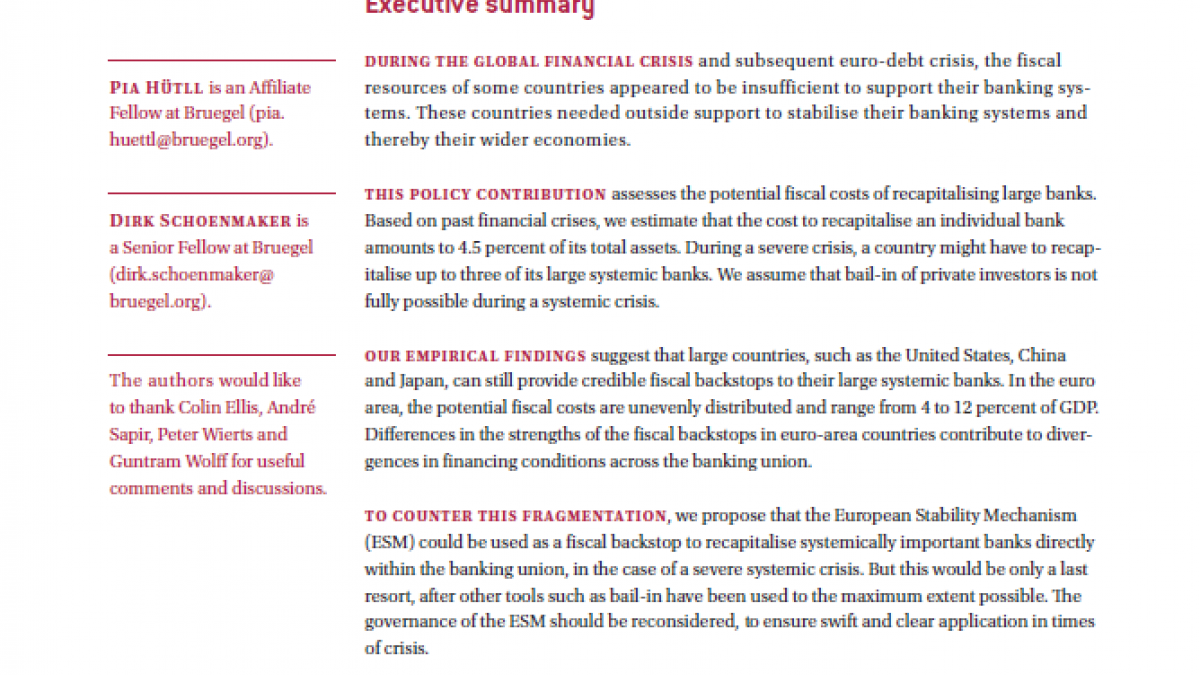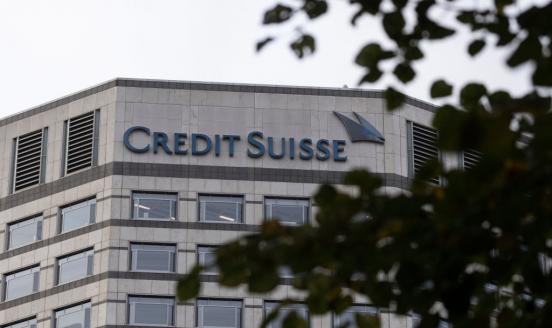Fiscal capacity to support large banks
This Policy Contribution outlines a fiscal cost scenario for the recapitalisation of large banks
during a severe systemic crisis.

During the global financial crisis and subsequent euro-debt crisis, the fiscal resources of some countries appeared to be insufficient to support their banking systems. These countries needed outside support to stabilise their banking systems and thereby their wider economies.
This Policy Contribution assesses the potential fiscal costs of recapitalising large banks. Based on past financial crises, we estimate that the cost to recapitalise an individual bank amounts to 4.5 percent of its total assets. During a severe crisis, a country might have to recapitalise up to three of its large systemic banks. We assume that bail-in of private investors is not fully possible during a systemic crisis.
Our empirical findings suggest that large countries, such as the United States, China and Japan, can still provide credible fiscal backstops to their large systemic banks. In the euro area, the potential fiscal costs are unevenly distributed and range from 4 to 12 percent of GDP. Differences in the strengths of the fiscal backstops in euro-area countries contribute to divergences in financing conditions across the banking union.
To counter this fragmentation, we propose that the European Stability Mechanism (ESM) could be used as a fiscal backstop to recapitalise systemically important banks directly within the banking union, in the case of a severe systemic crisis. But this would be only a last resort, after other tools such as bail-in have been used to the maximum extent possible. The governance of the ESM should be reconsidered, to ensure swift and clear application in times of crisis.



